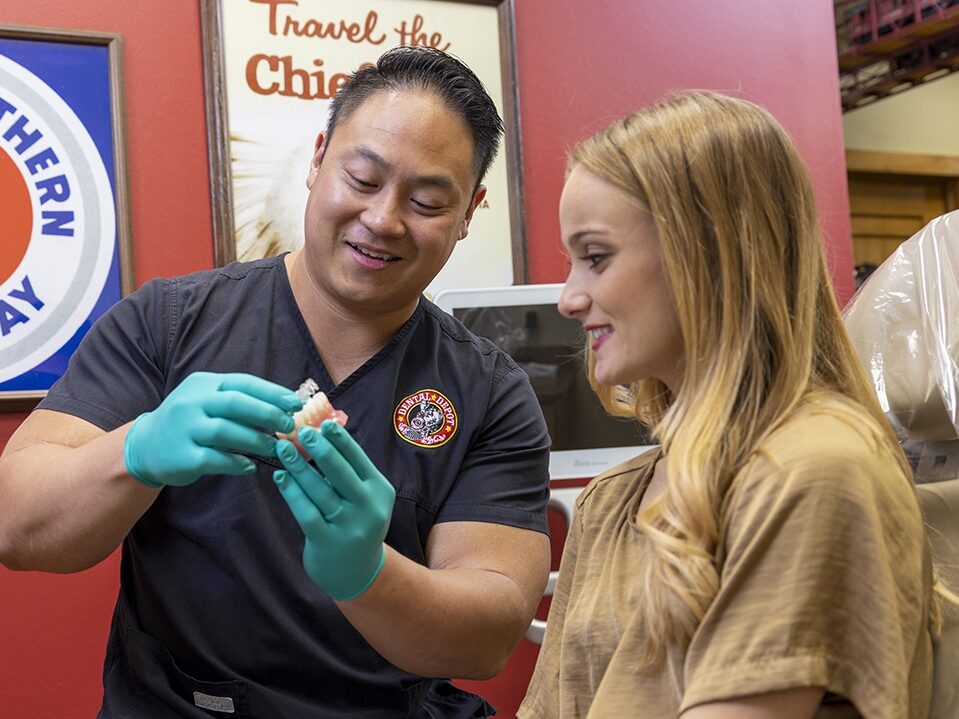Research indicates a success rate of about 95% for implants in the lower jaw and 90% for those in the upper jaw over a span of five years. The slightly reduced success rate for upper jaw implants stems from its lesser density compared to the lower jaw. This factor complicates the implantation procedure for oral surgeons and challenges the osseointegration process, where the implant fuses with the jawbone.

While some of these factors are the responsibility of the patient (i.e. smoking and poor oral hygiene), the experience of the oral surgeon doing the implants will play the biggest role in the success rates. It’s imperative to find a highly qualified oral surgeon when considering dental implants.
By getting answers to the questions above, you’ll be able to make a well-informed decision as to what dentist to work with and you’ll have the greatest success rates with your dental implants!
